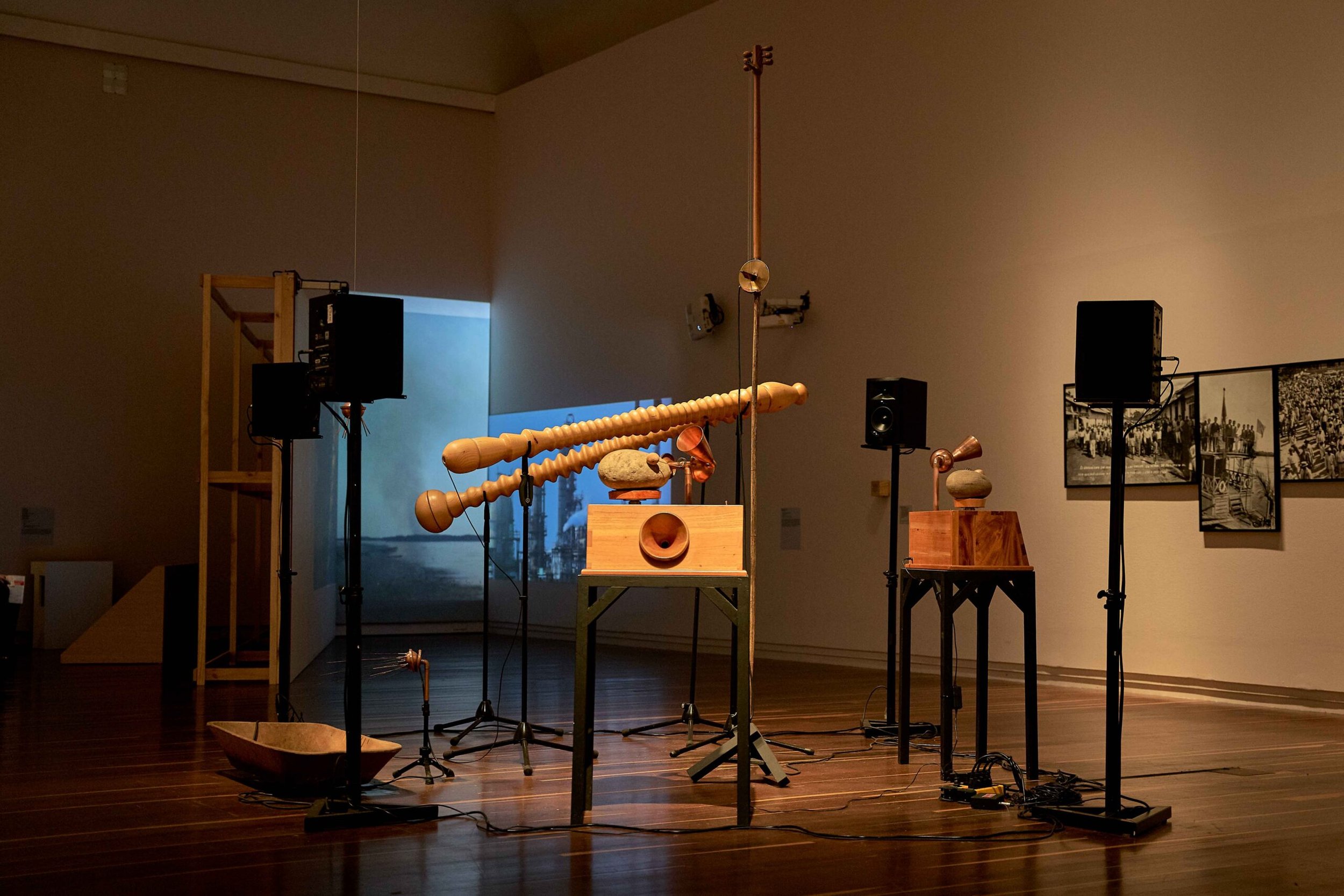
River song, singing rivers
Lisa Blackmore & Leonel Vásquez
River Song, Singing Rivers | Lisa Blackmore and Leonel Vásquez
To listen is to open up the channels and currents that run deep inside us, to attune ourselves to the lives that endure in polluted rivers. This podcast is an invitation to navigate the Bogotá River in Colombia through a more-than-human song created by sound artist Leonel Vásquez together with the living forces that shape the watershed’s ecosystems.
Loaded with chemicals and sewage along its course, the river is largely devoid of the fish and freshwater crustaceans that for thousands of years teemed in its waters. People have turned their backs on the water body, even though it was once the centre of collective life.
How might listening to the river’s song renew bonds of relation and reverence for water in dis-enchanted times? Guided by Leonel’s compositions, River Song, Singing Rivers is sonic immersion that attends to the Bogota rivers bogs, meanders, and flows as a living being worthy and in need of care.








ABOUT
Lisa Blackmore is founder-director and curator of entre-ríos, exploring continuities between water bodies, human bodies, and territories. She recognizes rivers as active subjects producing aesthetic forms, transforming landscapes, and shaping memory. Lisa is a Senior Lecturer in Art History and Interdisciplinary Studies at the University of Essex, UK, with a PhD and Masters in Latin American Cultural Studies.
Leonel Vásquez is a Colombian sound artist exploring ways of building spaces and experiences for listening as a political/aesthetic act involving non-human sonic agencies like waters, trees, and rocks. Their interests include underwater noise, geo-resonances, relational listening, and vibroacoustics of planetary well-being. They have done projects for Colombian cultural institutions and teach sound art at the University of Los Andes.
entre-ríos explores continuities between water bodies and human bodies, recognizing rivers as active subjects. We believe in artistic practices as catalysts for collaborative experiments connecting us to the environment and each other, creating knowledge deltas where arts, sciences, communities, and institutions meet. Like a river, we expand across spaces and times, connecting watersheds to create shared territories. We insist on the body as a means of knowledge production and creative encounters, working with hybrid interfaces and digital technologies to bring us close to water bodies.
Collective Werebere is interested in the pedagogy of listening as a political act, appropriating the body's sound condition, perceiving living environments, and deciphering their sounds as urgent messages for life care. They've researched resonance phenomena, resulting in an inventory of experimental amphibious lutherie objects mixed with vibration transition techniques towards the human body as a sonic organism. Their High Mountain Listening Station project is a space for contemplation, research, and well-being practices towards the body and territory of the Sumapaz Moor, serving as a base station for knowledge exchange.
